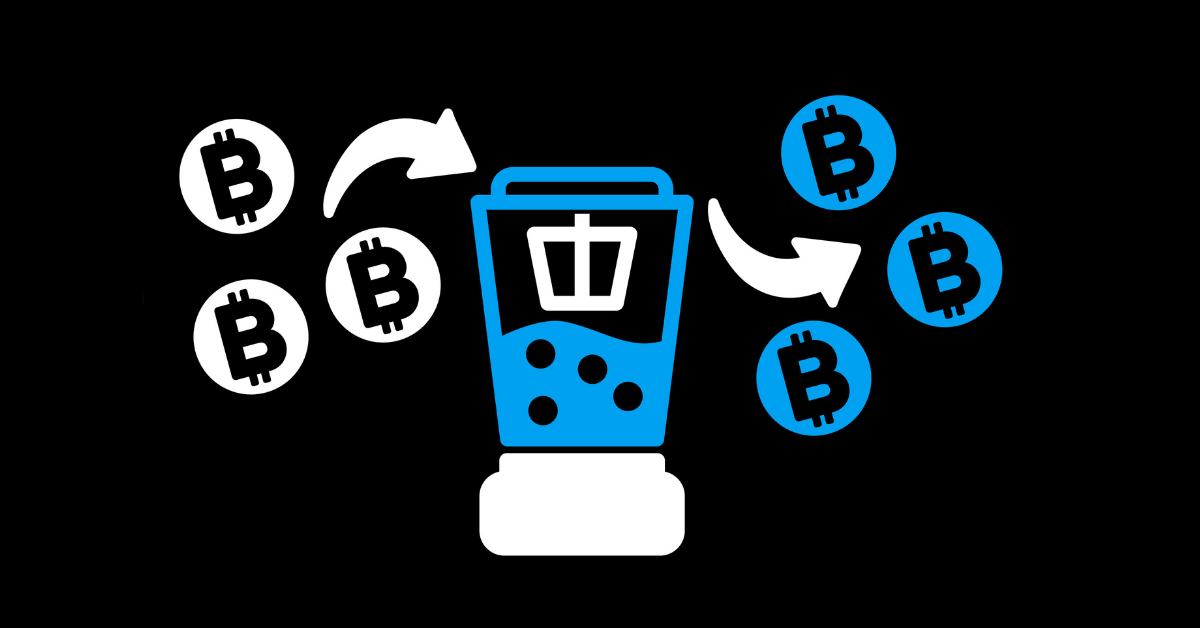Crypto mixers have been in the news recently with the banning of Tornado Cash being an important development in the crypto space.
What is a crypto mixer?
A crypto mixer is a decentralised service available on the blockchain, which provides anonymity for users. Transactions on blockchains such as Bitcoin and Ethereum take place on a public ledger, and so it is relatively simple to track the transactions of a particular user or wallet. By employing the use of a crypto mixer, a user can achieve some level of anonymity. Funds are sent to the crypto mixer, and then they are sent out of the mixer to various random wallet addresses, making it next to impossible for interested third parties to track where funds have gone in the tangle of transactions. I say next to impossible because there have been cases where transactions were forensically tracked by the FBI etc. in the case of large crypto hacks.
The reason that mixers have become a hot topic is because governments are claiming that mixers are being used to facilitate the illegal laundering of crypto funds. While it is true that a certain percentage of transactions being pushed through crypto mixers are used for illicit transactions, it is debatable whether or not that is good enough reason to ban mixers outright. Cash for example is used extensively for illicit activities, and that has not been banned (yet!). Just about any form of currency can be used for illegal activities and money laundering, so shutting down crypto mixers really makes little sense.
What going after crypto mixers does achieve however, it the removal of any possible shield of anonymity from users of a particular blockchain. There are of course a plethora of different reasons for an individual to want to remain anonymous in their financial transactions, and those reasons do not necessarily need to be sinister. One well cited example of a genuine use of Tornado Cash was cited by Vitalik himself.
My intent was protecting the recipients, not myself. The RU government knows my positions on the Ukraine issue anyway:https://t.co/nkgrqVY2au
— vitalik.eth (@VitalikButerin) August 9, 2022
While we have been using the word “banned” to describe the current state of crypto mixers, it is interesting to note that mixers have not been banned outright as such, but rather are required to adhere to the following three rules in order to operate legally in the US; registration with the Financial Crimes Enforcement Network, maintenance of an anti-money laundering and know your client (KYC) customer compliance program, and meeting all applicable record keeping and reporting requirements. Such requirements are effectively impossible for mixers to implement, as the whole point of the service is to provide users with anonymous transactions.
Failure to comply with these requirements can be followed up by server seizures, criminal charges, sanctions and civil penalties.
Criminal Charges
One man that knows all about the criminal charges that can be levelled against those that are linked to crypto mixers is Alexey Pertsev, who is still in jail having been arrested in the Netherlands for his involvement in the development of Tornado Cash.
The harshness of his treatment appears to be particularly stark when compared to other wrongdoers in the crypto space, such as SBF who is still walking around the Bahamas unimpeded as I write this.
The signal being sent out in this comparison is that it is objectively worse in the eyes of the law to develop code for a decentralised app that allows financial anonymity online, than it is to defraud an entire crypto exchange of $10B. Of course the comparison is not exactly direct with different countries involved in the story etc. but the motives for such an arrest still appear questionable.
Furthermore the precedent set by the case of Alexey Pertsev is worrying on a number of levels. We are approaching very dangerous territory if code can land a developer in jail, and there is a serious question mark over the impact of such arrests on Freedom of Speech and basic human rights.


